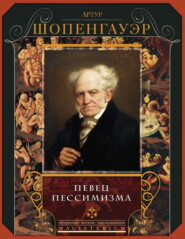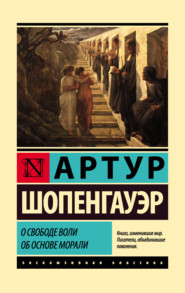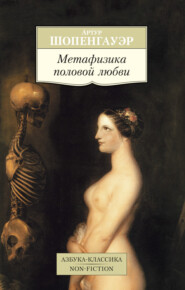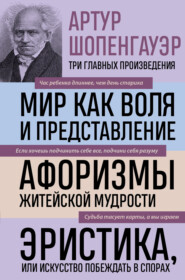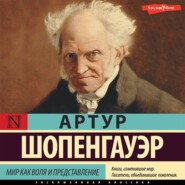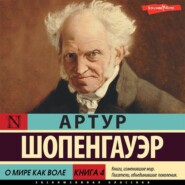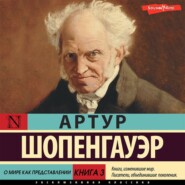По всем вопросам обращайтесь на: info@litportal.ru
(©) 2003-2024.
✖
Essays of Schopenhauer
Настройки чтения
Размер шрифта
Высота строк
Поля
However, the public is very much more interested in matter than in form, and it is for this very reason that it is behindhand in any high degree of culture. It is most laughable the way the public reveals its liking for matter in poetic works; it carefully investigates the real events or personal circumstances of the poet's life which served to give the motif of his works; nay, finally, it finds these more interesting than the works themselves; it reads more about Goethe than what has been written by Goethe, and industriously studies the legend of Faust in preference to Goethe's Faust itself. And when Bürger said that "people would make learned expositions as to who Leonora really was," we see this literally fulfilled in Goethe's case, for we now have many learned expositions on Faust and the Faust legend. They are and will remain of a purely material character. This preference for matter to form is the same as a man ignoring the shape and painting of a fine Etruscan vase in order to make a chemical examination of the clay and colours of which it is made. The attempt to be effective by means of the matter used, thereby ministering to this evil propensity of the public, is absolutely to be censured in branches of writing where the merit must lie expressly in the form; as, for instance, in poetical writing. However, there are numerous bad dramatic authors striving to fill the theatre by means of the matter they are treating. For instance, they place on the stage any kind of celebrated man, however stripped of dramatic incidents his life may have been, nay, sometimes without waiting until the persons who appear with him are dead.
The distinction between matter and form, of which I am here speaking, is true also in regard to conversation. It is chiefly intelligence, judgment, wit, and vivacity that enable a man to converse; they give form to the conversation. However, the matter of the conversation must soon come into notice – in other words, that about which one can talk to the man, namely, his knowledge. If this is very small, it will only be his possessing the above-named formal qualities in a quite exceptionally high degree that will make his conversation of any value, for his matter will be restricted to things concerning humanity and nature, which are known generally. It is just the reverse if a man is wanting in these formal qualities, but has, on the other hand, knowledge of such a kind that it lends value to his conversation; this value, however, will then entirely rest on the matter of his conversation, for, according to the Spanish proverb, mas sabe el necio en su casa, que el sabio en la agena.
A thought only really lives until it has reached the boundary line of words; it then becomes petrified and dies immediately; yet it is as everlasting as the fossilised animals and plants of former ages. Its existence, which is really momentary, may be compared to a crystal the instant it becomes crystallised.
As soon as a thought has found words it no longer exists in us or is serious in its deepest sense.
When it begins to exist for others it ceases to live in us; just as a child frees itself from its mother when it comes into existence. The poet has also said:
"Ihr müsst mich nicht durch Widerspruch verwirren! Sobald man spricht, beginnt man schon zu irren."
The pen is to thought what the stick is to walking, but one walks most easily without a stick, and thinks most perfectly when no pen is at hand. It is only when a man begins to get old that he likes to make use of a stick and his pen.
A hypothesis that has once gained a position in the mind, or been born in it, leads a life resembling that of an organism, in so far as it receives from the outer world matter only that is advantageous and homogeneous to it; on the other hand, matter that is harmful and heterogeneous to it is either rejected, or if it must be received, cast off again entirely.
Abstract and indefinite terms should be employed in satire only as they are in algebra, in place of concrete and specified quantities. Moreover, it should be used as sparingly as the dissecting knife on the body of a living man. At the risk of forfeiting his life it is an unsafe experiment.
For a work to become immortal it must possess so many excellences that it will not be easy to find a man who understands and values them all; so that there will be in all ages men who recognise and appreciate some of these excellences; by this means the credit of the work will be retained throughout the long course of centuries and ever-changing interests, for, as it is appreciated first in this sense, then in that, the interest is never exhausted.
An author like this, in other words, an author who has a claim to live on in posterity, can only be a man who seeks in vain his like among his contemporaries over the wide world, his marked distinction making him a striking contrast to every one else. Even if he existed through several generations, like the wandering Jew, he would still occupy the same position; in short, he would be, as Ariosto has put it, lo fece natura, e poi ruppe lo stampo. If this were not so, one would not be able to understand why his thoughts should not perish like those of other men.
In almost every age, whether it be in literature or art, we find that if a thoroughly wrong idea, or a fashion, or a manner is in vogue, it is admired. Those of ordinary intelligence trouble themselves inordinately to acquire it and put it in practice. An intelligent man sees through it and despises it, consequently he remains out of the fashion. Some years later the public sees through it and takes the sham for what it is worth; it now laughs at it, and the much-admired colour of all these works of fashion falls off like the plaster from a badly-built wall: and they are in the same dilapidated condition. We should be glad and not sorry when a fundamentally wrong notion of which we have been secretly conscious for a long time finally gains a footing and is proclaimed both loudly and openly. The falseness of it will soon be felt and eventually proclaimed equally loudly and openly. It is as if an abscess had burst.
The man who publishes and edits an article written by an anonymous critic should be held as immediately responsible for it as if he had written it himself; just as one holds a manager responsible for bad work done by his workmen. In this way the fellow would be treated as he deserves to be – namely, without any ceremony.
An anonymous writer is a literary fraud against whom one should immediately cry out, "Wretch, if you do not wish to admit what it is you say against other people, hold your slanderous tongue."
An anonymous criticism carries no more weight than an anonymous letter, and should therefore be looked upon with equal mistrust. Or do we wish to accept the assumed name of a man, who in reality represents a société anonyme, as a guarantee for the veracity of his friends?
The little honesty that exists among authors is discernible in the unconscionable way they misquote from the writings of others. I find whole passages in my works wrongly quoted, and it is only in my appendix, which is absolutely lucid, that an exception is made. The misquotation is frequently due to carelessness, the pen of such people has been used to write down such trivial and banal phrases that it goes on writing them out of force of habit. Sometimes the misquotation is due to impertinence on the part of some one who wants to improve upon my work; but a bad motive only too often prompts the misquotation – it is then horrid baseness and roguery, and, like a man who commits forgery, he loses the character for being an honest man for ever.
Style is the physiognomy of the mind. It is a more reliable key to character than the physiognomy of the body. To imitate another person's style is like wearing a mask. However fine the mask, it soon becomes insipid and intolerable because it is without life; so that even the ugliest living face is better. Therefore authors who write in Latin and imitate the style of the old writers essentially wear a mask; one certainly hears what they say, but one cannot watch their physiognomy – that is to say their style. One observes, however, the style in the Latin writings of men who think for themselves, those who have not deigned to imitate, as, for instance, Scotus Erigena, Petrarch, Bacon, Descartes, Spinoza, etc.
Affectation in style is like making grimaces. The language in which a man writes is the physiognomy of his nation; it establishes a great many differences, beginning from the language of the Greeks down to that of the Caribbean islanders.
We should seek for the faults in the style of another author's works, so that we may avoid committing the same in our own.
In order to get a provisional estimate of the value of an author's productions it is not exactly necessary to know the matter on which he has thought or what it is he has thought about it, – this would compel one to read the whole of his works, – but it will be sufficient to know how he has thought. His style is an exact expression of how he has thought, of the essential state and general quality of his thoughts. It shows the formal nature – which must always remain the same – of all the thoughts of a man, whatever the subject on which he has thought or what it is he has said about it. It is the dough out of which all his ideas are kneaded, however various they may be. When Eulenspiegel was asked by a man how long he would have to walk before reaching the next place, and gave the apparently absurd answer Walk, his intention was to judge from the man's walking how far he would go in a given time. And so it is when I have read a few pages of an author, I know about how far he can help me.
In the secret consciousness that this is the condition of things, every mediocre writer tries to mask his own natural style. This instantly necessitates his giving up all idea of being naïve, a privilege which belongs to superior minds sensible of their superiority, and therefore sure of themselves. For instance, it is absolutely impossible for men of ordinary intelligence to make up their minds to write as they think; they resent the idea of their work looking too simple. It would always be of some value, however. If they would only go honestly to work and in a simple way express the few and ordinary ideas they have really thought, they would be readable and even instructive in their own sphere. But instead of that they try to appear to have thought much more deeply than is the case. The result is, they put what they have to say into forced and involved language, create new words and prolix periods which go round the thought and cover it up. They hesitate between the two attempts of communicating the thought and of concealing it. They want to make it look grand so that it has the appearance of being learned and profound, thereby giving one the idea that there is much more in it than one perceives at the moment. Accordingly, they sometimes put down their thoughts in bits, in short, equivocal, and paradoxical sentences which appear to mean much more than they say (a splendid example of this kind of writing is furnished by Schelling's treatises on Natural Philosophy); sometimes they express their thoughts in a crowd of words and the most intolerable diffuseness, as if it were necessary to make a sensation in order to make the profound meaning of their phrases intelligible – while it is quite a simple idea if not a trivial one (examples without number are supplied in Fichte's popular works and in the philosophical pamphlets of a hundred other miserable blockheads that are not worth mentioning), or else they endeavour to use a certain style in writing which it has pleased them to adopt – for example, a style that is so thoroughly Kat' e'xochae'u profound and scientific, where one is tortured to death by the narcotic effect of long-spun periods that are void of all thought (examples of this are specially supplied by those most impertinent of all mortals, the Hegelians in their Hegel newspaper commonly known as Jahrbücher der wissenschaftlichen Literatur); or again, they aim at an intellectual style where it seems then as if they wish to go crazy, and so on. All such efforts whereby they try to postpone the nascetur ridiculus mus make it frequently difficult to understand what they really mean. Moreover, they write down words, nay, whole periods, which mean nothing in themselves, in the hope, however, that some one else will understand something from them. Nothing else is at the bottom of all such endeavours but the inexhaustible attempt which is always venturing on new paths, to sell words for thoughts, and by means of new expressions, or expressions used in a new sense, turns of phrases and combinations of all kinds, to produce the appearance of intellect in order to compensate for the want of it which is so painfully felt. It is amusing to see how, with this aim in view, first this mannerism and then that is tried; these they intend to represent the mask of intellect: this mask may possibly deceive the inexperienced for a while, until it is recognised as being nothing but a dead mask, when it is laughed at and exchanged for another.
We find a writer of this kind sometimes writing in a dithyrambic style, as if he were intoxicated; at other times, nay, on the very next page, he will be high-sounding, severe, and deeply learned, prolix to the last degree of dulness, and cutting everything very small, like the late Christian Wolf, only in a modern garment. The mask of unintelligibility holds out the longest; this is only in Germany, however, where it was introduced by Fichte, perfected by Schelling, and attained its highest climax finally in Hegel, always with the happiest results. And yet nothing is easier than to write so that no one can understand; on the other hand, nothing is more difficult than to express learned ideas so that every one must understand them. All the arts I have cited above are superfluous if the writer really possesses any intellect, for it allows a man to show himself as he is and verifies for all time what Horace said: Scribendi recte sapere est et principium et fons.
But this class of authors is like certain workers in metal, who try a hundred different compositions to take the place of gold, which is the only metal that can never have a substitute. On the contrary, there is nothing an author should guard against more than the apparent endeavour to show more intellect than he has; because this rouses the suspicion in the reader that he has very little, since a man always affects something, be its nature what it may, that he does not really possess. And this is why it is praise to an author to call him naïve, for it signifies that he may show himself as he is. In general, naïveté attracts, while anything that is unnatural everywhere repels. We also find that every true thinker endeavours to express his thoughts as purely, clearly, definitely, and concisely as ever possible. This is why simplicity has always been looked upon as a token, not only of truth, but also of genius. Style receives its beauty from the thought expressed, while with those writers who only pretend to think it is their thoughts that are said to be fine because of their style. Style is merely the silhouette of thought; and to write in a vague or bad style means a stupid or confused mind.
Hence, the first rule – nay, this in itself is almost sufficient for a good style – is this, that the author should have something to say. Ah! this implies a great deal. The neglect of this rule is a fundamental characteristic of the philosophical, and generally speaking of all the reflective authors in Germany, especially since the time of Fichte. It is obvious that all these writers wish to appear to have something to say, while they have nothing to say. This mannerism was introduced by the pseudo-philosophers of the Universities and may be discerned everywhere, even among the first literary notabilities of the age. It is the mother of that forced and vague style which seems to have two, nay, many meanings, as well as of that prolix and ponderous style, le stile empesé; and of that no less useless bombastic style, and finally of that mode of concealing the most awful poverty of thought under a babble of inexhaustible chatter that resembles a clacking mill and is just as stupefying: one may read for hours together without getting hold of a single clearly defined and definite idea. The Halleschen, afterwards called the Deutschen Jahrbücher, furnishes almost throughout excellent examples of this style of writing. The Germans, by the way, from force of habit read page after page of all kinds of such verbiage without getting any definite idea of what the author really means: they think it all very proper and do not discover that he is writing merely for the sake of writing. On the other hand, a good author who is rich in ideas soon gains the reader's credit of having really and truly something to say; and this gives the intelligent reader patience to follow him attentively. An author of this kind will always express himself in the simplest and most direct manner, for the very reason that he really has something to say; because he wishes to awaken in the reader the same idea he has in his own mind and no other. Accordingly he will be able to say with Boileau —
"Ma pensée au grand jour partout s'offre et s'expose,
Et mon vers, bien ou mal, dit toujours quelque chose;"
while of those previously described writers it may be said, in the words of the same poet, et qui parlant beaucoup ne disent jamais rien. It is also a characteristic of such writers to avoid, if it is possible, expressing themselves definitely, so that they may be always able in case of need to get out of a difficulty; this is why they always choose the more abstract expressions: while people of intellect choose the more concrete; because the latter bring the matter closer to view, which is the source of all evidence. This preference for abstract expressions may be confirmed by numerous examples: a specially ridiculous example is the following. Throughout German literature of the last ten years we find "to condition" almost everywhere used in place of "to cause" or "to effect." Since it is more abstract and indefinite it says less than it implies, and consequently leaves a little back door open to please those whose secret consciousness of their own incapacity inspires them with a continual fear of all definite expressions. While with other people it is merely the effect of that national tendency to immediately imitate everything that is stupid in literature and wicked in life; this is shown in either case by the quick way in which it spreads. The Englishman depends on his own judgment both in what he writes and what he does, but this applies less to the German than to any other nation. In consequence of the state of things referred to, the words "to cause" and "to effect" have almost entirely disappeared from the literature of the last ten years, and people everywhere talk of "to condition." The fact is worth mentioning because it is characteristically ridiculous. Everyday authors are only half conscious when they write, a fact which accounts for their want of intellect and the tediousness of their writings; they do not really themselves understand the meaning of their own words, because they take ready-made words and learn them. Hence they combine whole phrases more than words —phrases banales. This accounts for that obviously characteristic want of clearly defined thought; in fact, they lack the die that stamps their thoughts, they have no clear thought of their own; in place of it we find an indefinite, obscure interweaving of words, current phrases, worn-out terms of speech, and fashionable expressions. The result is that their foggy kind of writing is like print that has been done with old type. On the other hand, intelligent people really speak to us in their writings, and this is why they are able to both move and entertain us. It is only intelligent writers who place individual words together with a full consciousness of their use and select them with deliberation. Hence their style of writing bears the same relation to that of those authors described above, as a picture that is really painted does to one that has been executed with stencil. In the first instance every word, just as every stroke of the brush, has some special significance, while in the other everything is done mechanically. The same distinction may be observed in music. For it is the omnipresence of intellect that always and everywhere characterises the works of the genius; and analogous to this is Lichtenberg's observation, namely, that Garrick's soul was omnipresent in all the muscles of his body. With regard to the tediousness of the writings referred to above, it is to be observed in general that there are two kinds of tediousness – an objective and a subjective. The objective form of tediousness springs from the deficiency of which we have been speaking – that is to say, where the author has no perfectly clear thought or knowledge to communicate. For if a writer possesses any clear thought or knowledge it will be his aim to communicate it, and he will work with this end in view; consequently the ideas he furnishes are everywhere clearly defined, so that he is neither diffuse, unmeaning, nor confused, and consequently not tedious. Even if his fundamental idea is wrong, yet in such a case it will be clearly thought out and well pondered; in other words, it is at least formally correct, and the writing is always of some value. While, for the same reason, a work that is objectively tedious is at all times without value. Again, subjective tediousness is merely relative: this is because the reader is not interested in the subject of the work, and that what he takes an interest in is of a very limited nature. The most excellent work may therefore be tedious subjectively to this or that person, just as, vice vers, the worst work may be subjectively diverting to this or that person: because he is interested in either the subject or the writer of the book.
It would be of general service to German authors if they discerned that while a man should, if possible, think like a great mind, he should speak the same language as every other person. Men should use common words to say uncommon things, but they do the reverse. We find them trying to envelop trivial ideas in grand words and to dress their very ordinary thoughts in the most extraordinary expressions and the most outlandish, artificial, and rarest phrases. Their sentences perpetually stalk about on stilts. With regard to their delight in bombast, and to their writing generally in a grand, puffed-up, unreal, hyperbolical, and acrobatic style, their prototype is Pistol, who was once impatiently requested by Falstaff, his friend, to "say what you have to say, like a man of this world!"[5 - Schopenhauer here gives an example of this bombastic style which would be of little interest to English readers. – TRANSLATOR.]
There is no expression in the German language exactly corresponding to stile empesé; but the thing itself is all the more prevalent. When combined with unnaturalness it is in works what affected gravity, grandness, and unnaturalness are in social intercourse; and it is just as intolerable. Poverty of intellect is fond of wearing this dress; just as stupid people in everyday life are fond of assuming gravity and formality.
A man who writes in this preziös style is like a person who dresses himself up to avoid being mistaken for or confounded with the mob; a danger which a gentleman, even in his worst clothes, does not run. Hence just as a plebeian is recognised by a certain display in his dress and his tiré à quatre épingles, so is an ordinary writer recognised by his style.
If a man has something to say that is worth saying, he need not envelop it in affected expressions, involved phrases, and enigmatical innuendoes; but he may rest assured that by expressing himself in a simple, clear, and naïve manner he will not fail to produce the right effect. A man who makes use of such artifices as have been alluded to betrays his poverty of ideas, mind, and knowledge.
Nevertheless, it is a mistake to attempt to write exactly as one speaks. Every style of writing should bear a certain trace of relationship with the monumental style, which is, indeed, the ancestor of all styles; so that to write as one speaks is just as faulty as to do the reverse, that is to say, to try and speak as one writes. This makes the author pedantic, and at the same time difficult to understand.
Obscurity and vagueness of expression are at all times and everywhere a very bad sign. In ninety-nine cases out of a hundred they arise from vagueness of thought, which, in its turn, is almost always fundamentally discordant, inconsistent, and therefore wrong. When a right thought springs up in the mind it strives after clearness of expression, and it soon attains it, for clear thought easily finds its appropriate expression. A man who is capable of thinking can express himself at all times in clear, comprehensible, and unambiguous words. Those writers who construct difficult, obscure, involved, and ambiguous phrases most certainly do not rightly know what it is they wish to say: they have only a dull consciousness of it, which is still struggling to put itself into thought; they also often wish to conceal from themselves and other people that in reality they have nothing to say. Like Fichte, Schelling, and Hegel, they wish to appear to know what they do not know, to think what they do not think, and to say what they do not say.
Will a man, then, who has something real to impart endeavour to say it in a clear or an indistinct way? Quintilian has already said, plerumque accidit ut faciliora sint ad intelligendum et lucidiora multo, quae a doctissimo quoque dicuntur… Erit ergo etiam obscurior, quo quisque deterior.
A man's way of expressing himself should not be enigmatical, but he should know whether he has something to say or whether he has not. It is an uncertainty of expression which makes German writers so dull. The only exceptional cases are those where a man wishes to express something that is in some respect of an illicit nature. As anything that is far-fetched generally produces the reverse of what the writer has aimed at, so do words serve to make thought comprehensible; but only up to a certain point. If words are piled up beyond this point they make the thought that is being communicated more and more obscure. To hit that point is the problem of style and a matter of discernment; for every superfluous word prevents its purpose being carried out. Voltaire means this when he says: l'adjectif est l'ennemi du substantif. (But, truly, many authors try to hide their poverty of thought under a superfluity of words.)
Accordingly, all prolixity and all binding together of unmeaning observations that are not worth reading should be avoided. A writer must be sparing with the reader's time, concentration, and patience; in this way he makes him believe that what he has before him is worth his careful reading, and will repay the trouble he has spent upon it. It is always better to leave out something that is good than to write down something that is not worth saying. Hesiod's πλέον ἡμισυ πάντος[6 - Opera et dies, v. 40.] finds its right application. In fact, not to say everything! Le secret pour être ennuyeux, c'est de tout dire. Therefore, if possible, the quintessence only! the chief matter only! nothing that the reader would think for himself. The use of many words in order to express little thought is everywhere the infallible sign of mediocrity; while to clothe much thought in a few words is the infallible sign of distinguished minds.
Truth that is naked is the most beautiful, and the simpler its expression the deeper is the impression it makes; this is partly because it gets unobstructed hold of the hearer's mind without his being distracted by secondary thoughts, and partly because he feels that here he is not being corrupted or deceived by the arts of rhetoric, but that the whole effect is got from the thing itself. For instance, what declamation on the emptiness of human existence could be more impressive than Job's: Homo, natus de muliere, brevi vivit tempore, repletus multis miseriis, qui, tanquam flos, egreditur et conteritur, et fugit velut umbra. It is for this very reason that the naïve poetry of Goethe is so incomparably greater than the rhetorical of Schiller. This is also why many folk-songs have so great an effect upon us. An author should guard against using all unnecessary rhetorical adornment, all useless amplification, and in general, just as in architecture he should guard against an excess of decoration, all superfluity of expression – in other words, he must aim at chastity of style. Everything that is redundant has a harmful effect. The law of simplicity and naïveté applies to all fine art, for it is compatible with what is most sublime.
True brevity of expression consists in a man only saying what is worth saying, while avoiding all diffuse explanations of things which every one can think out for himself; that is, it consists in his correctly distinguishing between what is necessary and what is superfluous. On the other hand, one should never sacrifice clearness, to say nothing of grammar, for the sake of being brief. To impoverish the expression of a thought, or to obscure or spoil the meaning of a period for the sake of using fewer words shows a lamentable want of judgment. And this is precisely what that false brevity nowadays in vogue is trying to do, for writers not only leave out words that are to the purpose, but even grammatical and logical essentials.[7 - Schopenhauer here at length points out various common errors in the writing and speaking of German which would lose significance in a translation. – TR.]
Subjectivity, which is an error of style in German literature, is, through the deteriorated condition of literature and neglect of old languages, becoming more common. By subjectivity I mean when a writer thinks it sufficient for himself to know what he means and wants to say, and it is left to the reader to discover what is meant. Without troubling himself about his reader, he writes as if he were holding a monologue; whereas it should be a dialogue, and, moreover, a dialogue in which he must express himself all the more clearly as the questions of the reader cannot be heard. And it is for this very reason that style should not be subjective but objective, and for it to be objective the words must be written in such a way as to directly compel the reader to think precisely the same as the author thought. This will only be the case when the author has borne in mind that thoughts, inasmuch as they follow the law of gravity, pass more easily from head to paper than from paper to head. Therefore the journey from paper to head must be helped by every means at his command. When he does this his words have a purely objective effect, like that of a completed oil painting; while the subjective style is not much more certain in its effect than spots on the wall, and it is only the man whose fantasy is accidentally aroused by them that sees figures; other people only see blurs. The difference referred to applies to every style of writing as a whole, and it is also often met with in particular instances; for example, I read in a book that has just been published: I have not written to increase the number of existing books. This means exactly the opposite of what the writer had in view, and is nonsense into the bargain.
A man who writes carelessly at once proves that he himself puts no great value on his own thoughts. For it is only by being convinced of the truth and importance of our thoughts that there arises in us the inspiration necessary for the inexhaustible patience to discover the clearest, finest, and most powerful expression for them; just as one puts holy relics or priceless works of art in silvern or golden receptacles. It was for this reason that the old writers – whose thoughts, expressed in their own words, have lasted for thousands of years and hence bear the honoured title of classics – wrote with universal care. Plato, indeed, is said to have written the introduction to his Republic seven times with different modifications. On the other hand, the Germans are conspicuous above all other nations for neglect of style in writing, as they are for neglect of dress, both kinds of slovenliness which have their source in the German national character. Just as neglect of dress betrays contempt for the society in which a man moves, so does a hasty, careless, and bad style show shocking disrespect for the reader, who then rightly punishes it by not reading the book.
ON NOISE
Kant has written a treatise on The Vital Powers; but I should like to write a dirge on them, since their lavish use in the form of knocking, hammering, and tumbling things about has made the whole of my life a daily torment. Certainly there are people, nay, very many, who will smile at this, because they are not sensitive to noise; it is precisely these people, however, who are not sensitive to argument, thought, poetry or art, in short, to any kind of intellectual impression: a fact to be assigned to the coarse quality and strong texture of their brain tissues. On the other hand, in the biographies or in other records of the personal utterances of almost all great writers, I find complaints of the pain that noise has occasioned to intellectual men. For example, in the case of Kant, Goethe, Lichtenberg, Jean Paul; and indeed when no mention is made of the matter it is merely because the context did not lead up to it. I should explain the subject we are treating in this way: If a big diamond is cut up into pieces, it immediately loses its value as a whole; or if an army is scattered or divided into small bodies, it loses all its power; and in the same way a great intellect has no more power than an ordinary one as soon as it is interrupted, disturbed, distracted, or diverted; for its superiority entails that it concentrates all its strength on one point and object, just as a concave mirror concentrates all the rays of light thrown upon it. Noisy interruption prevents this concentration. This is why the most eminent intellects have always been strongly averse to any kind of disturbance, interruption and distraction, and above everything to that violent interruption which is caused by noise; other people do not take any particular notice of this sort of thing. The most intelligent of all the European nations has called "Never interrupt" the eleventh commandment. But noise is the most impertinent of all interruptions, for it not only interrupts our own thoughts but disperses them. Where, however, there is nothing to interrupt, noise naturally will not be felt particularly. Sometimes a trifling but incessant noise torments and disturbs me for a time, and before I become distinctly conscious of it I feel it merely as the effort of thinking becomes more difficult, just as I should feel a weight on my foot; then I realise what it is.
But to pass from genus to species, the truly infernal cracking of whips in the narrow resounding streets of a town must be denounced as the most unwarrantable and disgraceful of all noises. It deprives life of all peace and sensibility. Nothing gives me so clear a grasp of the stupidity and thoughtlessness of mankind as the tolerance of the cracking of whips. This sudden, sharp crack which paralyses the brain, destroys all meditation, and murders thought, must cause pain to any one who has anything like an idea in his head. Hence every crack must disturb a hundred people applying their minds to some activity, however trivial it may be; while it disjoints and renders painful the meditations of the thinker; just like the executioner's axe when it severs the head from the body. No sound cuts so sharply into the brain as this cursed cracking of whips; one feels the prick of the whip-cord in one's brain, which is affected in the same way as the mimosa pudica is by touch, and which lasts the same length of time. With all respect for the most holy doctrine of utility, I do not see why a fellow who is removing a load of sand or manure should obtain the privilege of killing in the bud the thoughts that are springing up in the heads of about ten thousand people successively. (He is only half-an-hour on the road.)
Hammering, the barking of dogs, and the screaming of children are abominable; but it is only the cracking of a whip that is the true murderer of thought. Its object is to destroy every favourable moment that one now and then may have for reflection. If there were no other means of urging on an animal than by making this most disgraceful of all noises, one would forgive its existence. But it is quite the contrary: this cursed cracking of whips is not only unnecessary but even useless. The effect that it is intended to have on the horse mentally becomes quite blunted and ineffective; since the constant abuse of it has accustomed the horse to the crack, he does not quicken his pace for it. This is especially noticeable in the unceasing crack of the whip which comes from an empty vehicle as it is being driven at its slowest rate to pick up a fare. The slightest touch with the whip would be more effective. Allowing, however, that it were absolutely necessary to remind the horse of the presence of the whip by continually cracking it, a crack that made one hundredth part of the noise would be sufficient. It is well known that animals in regard to hearing and seeing notice the slightest indications, even indications that are scarcely perceptible to ourselves. Trained dogs and canary birds furnish astonishing examples of this. Accordingly, this cracking of whips must be regarded as something purely wanton; nay, as an impudent defiance, on the part of those who work with their hands, offered to those who work with their heads. That such infamy is endured in a town is a piece of barbarity and injustice, the more so as it could be easily removed by a police notice requiring every whip cord to have a knot at the end of it. It would do no harm to draw the proletariat's attention to the classes above him who work with their heads; for he has unbounded fear of any kind of head work. A fellow who rides through the narrow streets of a populous town with unemployed post-horses or cart-horses, unceasingly cracking with all his strength a whip several yards long, instantly deserves to dismount and receive five really good blows with a stick. If all the philanthropists in the world, together with all the legislators, met in order to bring forward their reasons for the total abolition of corporal punishment, I would not be persuaded to the contrary.
But we can see often enough something that is even still worse. I mean a carter walking alone, and without any horses, through the streets incessantly cracking his whip. He has become so accustomed to the crack in consequence of its unwarrantable toleration. Since one looks after one's body and all its needs in a most tender fashion, is the thinking mind to be the only thing that never experiences the slightest consideration or protection, to say nothing of respect? Carters, sack-bearers (porters), messengers, and such-like, are the beasts of burden of humanity; they should be treated absolutely with justice, fairness, forbearance and care, but they ought not to be allowed to thwart the higher exertions of the human race by wantonly making a noise. I should like to know how many great and splendid thoughts these whips have cracked out of the world. If I had any authority, I should soon produce in the heads of these carters an inseparable nexus idearum between cracking a whip and receiving a whipping.
Let us hope that those nations with more intelligence and refined feelings will make a beginning, and then by force of example induce the Germans to do the same.[8 - According to a notice from the Munich Society for the Protection of Animals, the superfluous whipping and cracking were strictly forbidden in Nuremberg in December 1858.] Meanwhile, hear what Thomas Hood says of them (Up the Rhine): "For a musical people they are the most noisy I ever met with" That they are so is not due to their being more prone to making a noise than other people, but to their insensibility, which springs from obtuseness; they are not disturbed by it in reading or thinking, because they do not think; they only smoke, which is their substitute for thought. The general toleration of unnecessary noise, for instance, of the clashing of doors, which is so extremely ill-mannered and vulgar, is a direct proof of the dulness and poverty of thought that one meets with everywhere. In Germany it seems as though it were planned that no one should think for noise; take the inane drumming that goes on as an instance. Finally, as far as the literature treated of in this chapter is concerned, I have only one work to recommend, but it is an excellent one: I mean a poetical epistle in terzo rimo by the famous painter Bronzino, entitled "De' Romori: a Messer Luca Martini" It describes fully and amusingly the torture to which one is put by the many kinds of noises of a small Italian town. It is written in tragicomic style. This epistle is to be found in Opere burlesche del Berni, Aretino ed altri, vol. ii. p. 258, apparently published in Utrecht in 1771.
The nature of our intellect is such that ideas are said to spring by abstraction from observations, so that the latter are in existence before the former. If this is really what takes place, as is the case with a man who has merely his own experience as his teacher and book, he knows quite well which of his observations belong to and are represented by each of his ideas; he is perfectly acquainted with both, and accordingly he treats everything correctly that comes before his notice. We might call this the natural mode of education.
On the other hand, an artificial education is having one's head crammed full of ideas, derived from hearing others talk, from learning and reading, before one has anything like an extensive knowledge of the world as it is and as one sees it. The observations which produce all these ideas are said to come later on with experience; but until then these ideas are applied wrongly, and accordingly both things and men are judged wrongly, seen wrongly, and treated wrongly. And so it is that education perverts the mind; and this is why, after a long spell of learning and reading, we enter the world, in our youth, with views that are partly simple, partly perverted; consequently we comport ourselves with an air of anxiety at one time, at another of presumption. This is because our head is full of ideas which we are now trying to make use of, but almost always apply wrongly. This is the result of ὑστερον προτερον (putting the cart before the horse), since we are directly opposing the natural development of our mind by obtaining ideas first and observations last; for teachers, instead of developing in a boy his faculties of discernment and judgment, and of thinking for himself, merely strive to stuff his head full of other people's thoughts. Subsequently, all the opinions that have sprung from misapplied ideas have to be rectified by a lengthy experience; and it is seldom that they are completely rectified. This is why so few men of learning have such sound common sense as is quite common among the illiterate.
* * * * *
From what has been said, the principal point in education is that one's knowledge of the world begins at the right end; and the attainment of which might be designated as the aim of all education. But, as has been pointed out, this depends principally on the observation of each thing preceding the idea one forms of it; further, that narrow ideas precede broader; so that the whole of one's instruction is given in the order that the ideas themselves during formation must have followed. But directly this order is not strictly adhered to, imperfect and subsequently wrong ideas spring up; and finally there arises a perverted view of the world in keeping with the nature of the individual – a view such as almost every one holds for a long time, and most people to the end of their lives. If a man analyses his own character, he will find that it was not until he reached a very ripe age, and in some cases quite unexpectedly, that he was able to rightly and clearly understand many matters of a quite simple nature.






